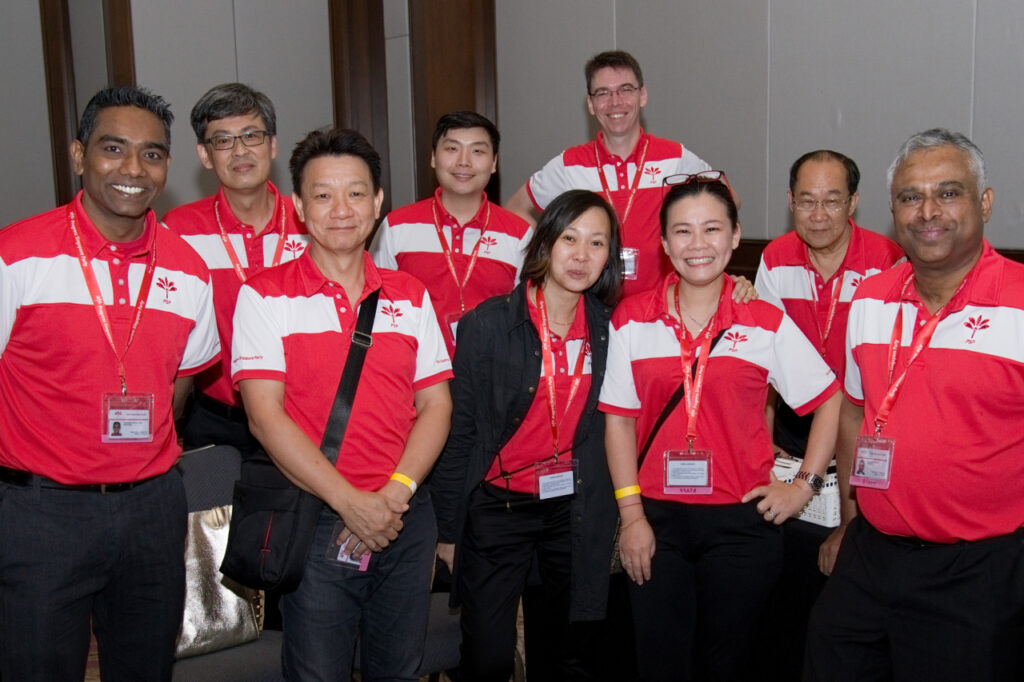Mr Speaker, The Progress Singapore Party (PSP) will not support this Budget because of the Goods and Services Tax (GST) hike. Middle-class Singaporeans will have to bear an additional GST burden of $1.2 billion per year. On top of that, many Singaporeans living in private properties who are asset-rich but cash-strapped, will bear a significant part of the $380 million property tax increase per year.
This Budget is a feeble attempt to increase the taxes on the rich after three decades of favorable tax policy towards them. The additional personal income tax raised is only $170 million per year, which many Singaporeans cynically pointed out was not enough to pay for the $180 million per year funding for the SPH Media Trust.
And the Additional Registration Fee (ARF) increase for luxury cars is not really a burden to the rich because the fee is transferrable to future owners.
Not enough has been done on foreign manpower policy as well. The increase in the minimum qualifying salary (MQS) for employment pass (EP) holders is too little to be effective. I am also surprised that S-pass holders are needed in the finance industry where many Singaporeans are hoping to work.
The more effective way to manage the quality of our EP holders is to ensure fair competition between the EPs and Singaporeans through imposing a standard wage levy on all EPs who do not make CPF contributions. If we impose a monthly $1,200 EP levy as I recommended in the Budget Debate and then the Foreign Talent and CECA debate last year, it will raise almost $3 billion and make the GST hike unnecessary.
As global inflation is now on an upcycle, we have to do more to help our Singaporeans cope with rising cost of living and asset inflation. This is the best timing to share with the Singaporeans a small part of the huge windfall profits, chalked by GIC, MAS and Temasek last year. However, not only the Government didn’t do that, it increases the tax burden on Singaporeans. This is incomprehensible to me.
The Government used healthcare cost as the main rationale for raising taxes. However, Singaporeans have paid and are still paying dearly for healthcare, is it fair to ask them to pay more taxes for healthcare again? Especially at this challenging times?
Look at the facts:
- $100 billion of the Singaporeans’ CPF funds are locked in Medisave accounts and Singaporeans contribute $10 billion to Medisave every year.
- $10 billion of reserves have been accumulated in MediShield and CareShield, while Singaporeans continue to pay $3 billion of MediShield and CareShield premiums every year, with premiums likely to rise every five years.
- Singaporeans also pay billions of dollar in private insurance.
Singapore is actually in a very strong financial position. We have the resources to pay for even the large healthcare cost increases forecasted by the Government.
Again look at the facts:
- The Government reported $1.40 trillion of financial assets as of 31 March 2021. This is an indication of the size of our national reserves.
- Our nation’s financial assets are currently closer to $1.60 trillion, due to an increase of $200 billion of reserves over last two years, despite and after the Covid-19 drawdowns.
- Net Investment Return (NIR) from these assets is now more than $40 billion per year.
- Half of the NIR or $20 billion is recycled back into the reserves.
- Another $10 billion of annual land sales proceeds is put into the reserves directly and not used for the current year spending.
Thus, even without touching the growing reserves, we have a total of $30 billion of unutilized revenues annually which can be deployed for the current year spending in the future. We can actually provide for our current generation while continuing to save for future generations at the same time.
Hence the Government’s argument for the future generation does not hold water. The virtue of frugality preached by the Finance Minister is telling cash-strapped Singaporeans to tighten their belts again while the Government is sitting on massive reserves and unutilized revenues.
Of course, we cannot rest on our laurels and rely on our reserves and unused revenues all the time. I only want to stress that we have the buffer and time to make better long-term plans.
Those plans should include the Government focusing on fiscal efficiency and discipline. While the Government has been running budget surpluses these years, public spending cuts have not been discussed openly.
Our budget has increased by about 7% per year over the last two decades to about $100 billion for FY2022. There is thus ample room for us to cut down on existing expenditures.
The Finance Minister has disclosed he is imposing a 3% cut on existing expenditures from next year. If he can achieve that every year, we will have a saving of $3 billion per year, again there will be no need for the GST hike. And we probably do more a 3% cut.
We advocate setting clear socio-economic targets for each expenditure. That is the reason we supported the SINGA scheme which will put big infrastructural projects under stricter financial discipline.
For example, many Singaporeans are asking what are the socio-economic return targets for the SPH Media Trust to which the Government is committing $900 million over the next five years?
How about the billions of dollars of taxpayers’ money spent on local universities that have relied heavily on foreign talent but do not seem to be producing sufficient local skills and talent needed for our economy?
When public funds are used to support or rescue a commercial organization, are there plans to claw back the funds when the commercial organization starts to make money?
For the Covid spending, many Singaporeans have questioned why the $30 billion Job Support Scheme is used to support profitable companies without a claw-back feature. The claw-back funds could have been used to help many more Singaporeans who needed help.
So as the amount of resources at the disposal of the Government grow larger, we need to check on the expenditures more closely.
We are also against the goodies bag approach as adopted by the Government to convince Singaporeans to accept the GST hike. Handing out short-term, ad hoc goodies to Singaporeans instead of using permanent schemes will not produce resilient Singaporeans but dependent Singaporeans.
Let me give you a specific example. I have been recommending a minimum living wage of $1,800 per month in take-home pay for all Singaporean workers. This works out to about $2,250 in gross wage per month.
This may appear high, but if you add Workfare Supplement, GST voucher, U-save rebate, CDC voucher and now Progressive Wage Credit, you could easily reach the $2,250 gross wage per month.
Hence, instead of handing out dribs and drabs to Singaporeans, the Government could have provided a lump sum to top up the average worker’s gross wage to $2,250 per month.
A permanent monthly wage of $2,250 will give workers more clarity in making personal financial plans for himself and his family. That is how we make Singaporeans more resilient!
Mr Speaker, in conclusion:
- The Progress Singapore Party does not support this Budget because there is no need for the GST hike.
- Our country is in a very strong financial position, but Singaporeans need all the help they can get to overcome their current financial challenges.
- With this Budget, the Government is asking Singaporeans to tighten their belts again while it sits on massive reserves and unutilized revenues.
- As Singaporeans are already burdened with high healthcare costs, the Government should first control the escalating costs of healthcare by changing the way our healthcare system works.
- PSP thinks that Singapore can have a new financial compact which is better than this Budget. (Speaker, Chinese please)
前进党反对增加消费税所以不支持这项预算案。政府通过增加消费税,将给中产阶级国人每年增加12亿元的负担。而同时,政府对富人的所得税和财富税的税收每年却仅增加预计不到6亿元。
新加坡财政状况良好。当国人仍在面对各种困境的时候,我们应该花心思制定更好的财政方案帮助他们。我们至今有1万6000亿储备金和300亿还未被动用的年收入。政府坐拥这金山银山,为什么还要在这个时刻让新加坡人勒紧裤腰带?
新加坡人已经在当前和未来的医疗需要上付出了大笔经销。所以我们的重点应该首先放在减少不断上升的医疗保健成本,而不是再加重新加坡人的负担。
政府的财政支出在过去20年里,以每年7%的幅度迅速增长。是时候看看该如何减少非社会性和非医疗性的开支。其中,政府的1000亿元的新冠疫情解救方案,其中的花销需要好好核算,给人民一个交代。
我们寻求一个替代方案,以新的财政模式更公平地分配国家资源,惠及社会各阶层。
Singaporeans deserve better. Thank you.


